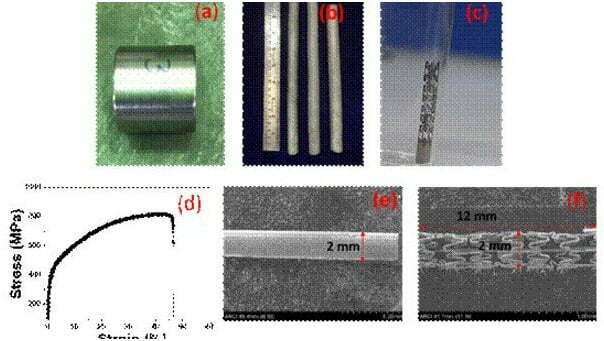Iron-Manganese based alloy Fe-Mn is a biodegradable metallic implant that exhibits a single austenitic phase with MRI compatibility. Scientists from the International Advanced Research Centre for Powder Metallurgy and New Materials (ARCI) and Sree Chitra Tirunal Institute of Medical Sciences (SCTIMST), Thiruvananthapuram, under the Department of Science & Technology (DST) jointly developed new generation Iron-Manganese based alloys for biodegradable metal implants for use in humans.

Highlights:
The newly developed alloys are suitable for biodegradable stent and orthopedic implant applications.
Iron-Manganese based alloy Fe-Mn is a biodegradable metallic implant that exhibits a single austenitic phase with MRI compatibility.
The biodegradable materials like Fe, Mg, Zn, and polymer, can participate in the healing process and then degrade gradually by maintaining the mechanical integrity without leaving any implant residues in the human body. These are better alternatives to currently used metallic implants that remain permanently in the human body and can cause long-term side effects like systemic toxicity, chronic inflammation, and thrombosis.
During the degradation process, calcium phosphate deposits on the implant due to local alkalization and saturation of calcium and phosphate, allow cells to adhere onto the surface to form tissues.
Resource courtesy: Department of Science and Technology
https://dst.gov.in/arci-scientists-develop-next-generation-biodegradable-metal-implants

